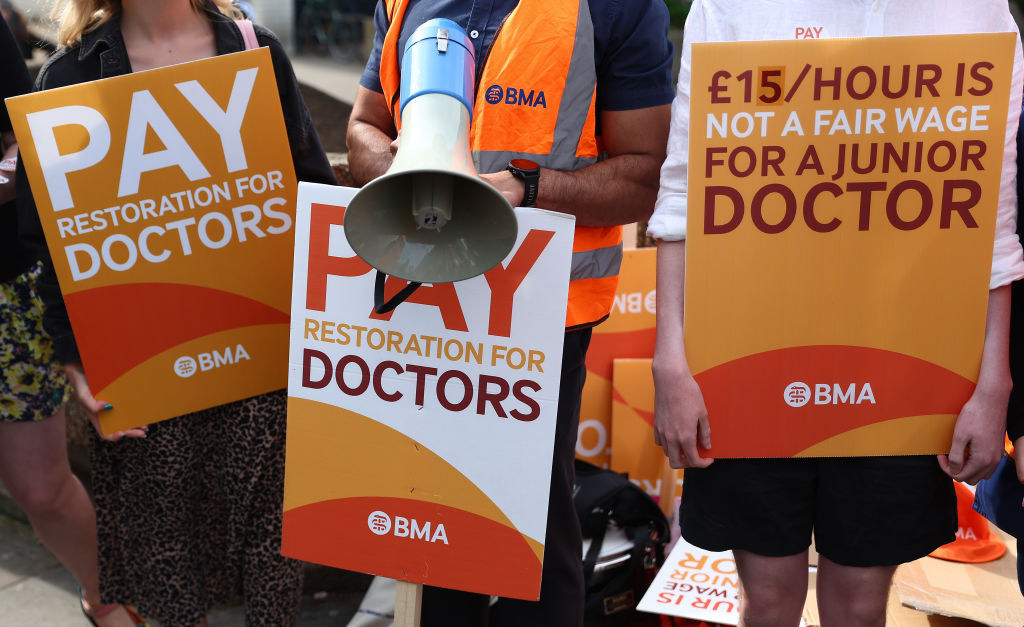As if Prime Minister Keir Starmer didn’t have enough to worry about overseas with Donald Trump’s tariffs, now old tensions are also threatening to cause problems closer to home. The British Medical Association has announced today that its junior doctors – now referred to as ‘residents’ – have re-entered a dispute with the government over delays to pay recommendations for the next financial year. What exactly does this mean? It means that more strikes could be on the horizon.
There is no guarantee that the goodwill Streeting has built up with the doctors’ union will last indefinitely
Labour Health Secretary Wes Streeting has enjoyed boasting of his successful negotiations with medics after he closed a deal with doctors just three weeks after his party’s July election victory last year. But his rosy relationship with the medical profession wasn’t to last. Thanks to some foot-dragging by the doctors’ and dentists’ pay review body (DDRB) – which advises the government on salary rates for health professionals – next year’s pay recommendations have not been published on time. The doctors’ union claims this violates the deals it negotiated over the last two years and its UK resident doctors committee has now voted to restart its pay dispute – the first step before balloting union members for industrial action.
In a statement today, the co-chairs of the resident doctors committee have warned that the ‘failure to keep to agreed timetables is an ominous sign that trust is already eroding’ between medics and the Labour government. Appealing directly to the Health Secretary, Drs Melissa Ryan and Ross Nieuwoudt have urged Streeting to ‘get around the table’ and ‘come forward with a plan to put us back on the road to pay restoration’. While the union representatives insist they have ‘no desire to move towards industrial action’, the duo are adamant that the government’s pay offer for 2025/26 must be ‘sufficient’ to head off further strikes.
Today’s news will come as a blow to the Health Secretary, who has enjoyed positive write-ups in the papers this week, including today’s news covering his national prostate cancer screening plans and a pledge to tackle violence against NHS staff. On Tuesday, Streeting proudly proclaimed that an extra 1,500 general practitioners have been added to the workforce since last October (although a significant proportion of these people will not work full-time) and the government’s decision to scrap NHS England was touted on Monday as a prime example of Labour’s war on quangos.
While Streeting remains intent on slashing bureaucracy in the health service, successful NHS reform will never be successful without tackling the workforce crisis. 11 rounds of strike action saw devastating delays to the delivery of treatments and procedures – with costs to the health service entering the billions. The BMA’s tone is, at present, civil. But there is no guarantee that the goodwill Streeting has built up with the doctors’ union will last indefinitely. The clock is ticking if Labour wants to keep Britain’s medics on side.







Comments